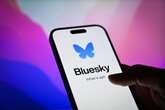The no-buy trend isn’t anything new, but it gains fresh momentum every January, right on the heels of the holiday splurge.
If you’re new to the trend, the concept is simple. While there’s no strict rule book for the monthlong no-spend challenge, most participants stick to the basics, limiting their spending to nondiscretionary items like groceries and transportation. Some take it a step further by sharing detailed lists of what’s allowed and what’s off-limits in their budget—no more impulse-shopping hauls or indulgent brunch dates, at least for the month.
“I know that #nospendjanuary seems like the absolute worst thing ever,” admits one TikTok user. “But honestly I have seen so many videos where it has absolutely been a game changer in people’s finances and how much they saved in one month is truly crazy.”
@jadebjohnson our no spend january rules ! #nospendmonth #nospendjanuary #nospendjanuaryrules #2025 ♬ original sound – jade johnson 💌
@jadebjohnson our no spend january rules ! #nospendmonth #nospendjanuary #nospendjanuaryrules #2025 ♬ original sound – jade johnson 💌
our no spend january rules ! #nospendmonth #nospendjanuary #nospendjanuaryrules #2025
Her realistic and attainable guidelines include no spending on eating out or extraneous purchases like clothes, home decor, Amazon shopping or impulse buys from the Aldi middle aisle. Some people have even set weekly spending caps to keep themselves accountable and track progress. “My goal is to spend under $1,000 this month,” another creator shared alongside her rules and exceptions for her no-spend month. “Wish me luck.”
Shopping bans and other financial “detox” programs have been around for a while; still, it’s easy to see why January is an attractive month to practice financial restraint. “I feel like we are all spent out anyway with the holidays,” says one creator. “It’s time to take a break.” For many, the challenge is less about restriction and more about redefining their relationship with money for the year ahead, prioritizing intentional purchases over impulse buys. “My only New Year’s resolution is to be more thoughtful about the things I’m purchasing,” she adds.
@jacklyn._anne Anyone want to join me? This is my first time doing a dedicated no spend😬 wish me luck😅#newyearresolution #nospendchallenge #nobuy #nobuychallenge #january2025 #underconsumption #underconsumptioncore ♬ original sound – Noah Kahan
@jacklyn._anne Anyone want to join me? This is my first time doing a dedicated no spend😬 wish me luck😅#newyearresolution #nospendchallenge #nobuy #nobuychallenge #january2025 #underconsumption #underconsumptioncore ♬ original sound – Noah Kahan
Anyone want to join me? This is my first time doing a dedicated no spend😬 wish me luck😅#newyearresolution #nospendchallenge #nobuy #nobuychallenge #january2025 #underconsumption #underconsumptioncore
But before cutting up your credit cards, it’s important to consider why you’re undertaking the challenge. Is it simply to save money, or is there something specific you’re looking to reduce your spending on? Once clear on your financial goals, set yourself up for success. Delete shopping apps, unsubscribe from marketing emails, and even take a break from social media if endless scrolling fuels your urge to shop. Every time you’re tempted to buy something, jot it down in your phone’s Notes app. At the end of the month, revisit the list and see if you still want the items you’ve noted.
Whether or not they’re committing to a no-spend or low-spend challenge, it seems that for the most part, Americans are feeling optimistic about their financial resolutions for 2025, a Motley Fool Money survey reveals. While 69% plan to set money goals, 74% are confident they’ll achieve them. If the habit starts to feel good, why stop at January?









No comments